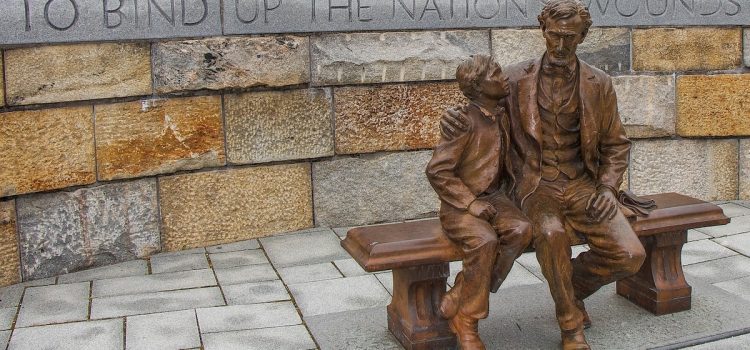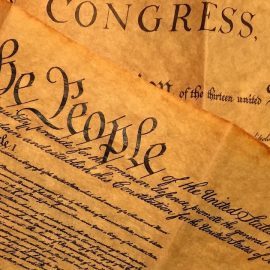
How do people think of Abraham Lincoln today? What if his life hadn’t been cut short?
In And There Was Light, Jon Meacham breaks down the myths and legends surrounding America’s 16th president. He seeks to present a fair and honest account of Abraham Lincoln’s life and concludes with what he believes is a balanced view of the president’s legacy.
Continue reading to learn about the weighty and complex issues entailed in Abraham Lincoln’s legacy—and decide for yourself.
Abraham Lincoln’s Legacy
Broadly speaking, people think of Abraham Lincoln in one of two ways: as the Great Emancipator who saved the United States and ensured freedom for all its people or as a tyrant who overstepped his authority and forced Northern ideology onto the South. Meacham says the truth of Abraham Lincoln’s legacy is somewhere in the middle. Lincoln was a political moderate, a negotiator, and a peacemaker at heart, yet willing to fight passionately for what he believed in.
It’s unclear whether there was anything Lincoln could have done to prevent the Civil War, short of allowing the Union to split and the Confederacy to secede. It’s equally unclear what the outcome would have been if he’d lived long enough to enact his plans for Reconstruction. But Meacham says it is clear that Lincoln is remembered as one of the most famous and influential American presidents—the man who guided the United States through its greatest crisis to date—and that his work was left tragically unfinished.
| What if Lincoln Had Survived? The question of where the United States would be today if Lincoln hadn’t been assassinated has been the subject of many debates and think pieces over the years. Some scholars dream of a United States where Lincoln’s second term secured voting rights for all and resulted in massive infrastructure and public education projects. The most optimistic among these imagine that he’d have accomplished many of the things that the Civil Rights movement had to fight for a century later, including universal Black suffrage. More moderate thinkers point out that Lincoln’s one remaining term was hardly enough time to accomplish all he dreamed of, especially given the fierce political opposition he would face. However, they acknowledge—given Lincoln’s reputation as a skilled mediator—that he’d almost certainly have healed the nation’s divisions more effectively than Andrew Johnson did. Still, other Lincoln scholars say that considering Lincoln’s unpopularity and hesitation to overstep the federal government’s bounds, there’s no reason to believe he would’ve been any more successful at Reconstruction than Andrew Johnson was. These scholars explain that Lincoln wasn’t the dauntless, masterful politician he’s often portrayed as. They argue that he was in a weak position at the start of his first term as president (due to the backlash against his relatively progressive platform), and he was reluctant to embark on the Civil War. According to this view, had Lincoln survived, people today might remember him as a weak president who struggled to hold his nation together and then failed to live up to his promises in the postwar era. |
Exercise: Reflect on Abraham Lincoln’s Legacy
Reflect on what you learned about Lincoln as you were growing up, and compare it to what Meacham wrote about him.
- What did you learn about Abraham Lincoln when you were growing up? Was he presented as the Great Emancipator, a tyrant, or something in between?
- How has your opinion of Lincoln changed over time?
- Do you see echoes of the Civil War divisions in American life today? If so, in what way?
- What if Lincoln hadn’t been assassinated? How do you think his legacy might be different?






